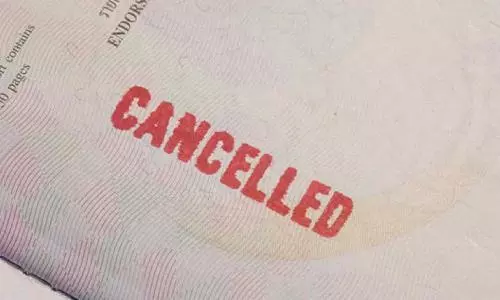
The issue is not absence of mosque for prayer
text_fieldsThe Supreme Court judgement through its judgement of 27 September, rejected the demand by Sunni Waqf Board to refer to a seven-member constitution bench the subject of Supreme Court's pronouncement in its verdict on the 1994 Ismail Farooqi case.
The judgement which refused to reconsider the mention in Ismail Farooqi case - that a mosque is not integral to Muslim prayer - deserves serious analysis.
Following the demolition of Babari masjid, the Central Government took possession of the disputed land through a special ordinance, and it is the petition that questioned that take over that came to be known as Ismail Farooqi case. It is in the judgment on this case that the Supreme Court stated that mosque is not indispensible for practising Islam and Muslims can perform anywhere, even in an open ground. Rajeev Dhavan, representing Sunni Waqf Board, argued that this pronouncement in the 1994 judgment will affect Ayodhya case and therefore the matter has to be referred to a seven-member constitution bench to get the pronouncement expunged. However, the three-member bench, through a divided but majority verdict, has now decided that the mention in the 1994 judgement will only affect the ordinance for the possession of land of that time and need not influence other cases or judgements. Chief Justice Dipak Misra and Justice Ashok Bhushar issued this judgment while Justice Abdul Naseer gave a dissenting judgement. The latter judgement stated that the customs and rituals of religion are not to be decided in a hurry, and a larger constitution bench should be formed for more detailed examination. Given that in such situations, the majority judgement will prevail, the hearing for the final verdict on the Ayodhya case which the country has been eagerly awaiting, will start on 29 October.
The 27 September verdict has different ramifications. Had the issues of the Ismail Farooqi case been referred to a reconsideration, as demanded by Sunni Waqf Board, the case would have been subjected to further and wider hearing and got prolonged. But with its dismissal, Ayodhya case is becoming a hot topic again. In other words, when the country is going to face a general election, the hyper-sensitive issue of Ayodhya will be the central political issue. Perhaps the verdict on Ayodhya may even be made before the elections. Regardless of whether the judgement will be in favour or against one party, the beneficiaries of the verdict will be Sangh parivar and the ruling party, BJP. If it is a decision in favour of Muslims, they will be able to create riots all over the country and make political capital out of it. And if the decision is in favour of Sangh parivar, they will make justifications for the violence and bloodletting they have made thus far in the name of Ayodhya. They will put on a sacred face before the country, whip up Hindu sense of pride and make electoral gains out of it. This means that issuing a verdict before the general election, will adversely affect the conduct of election in the right atmosphere. This point was raised by eminent lawyer Kapil Sibal right at the time the case was taken up for hearing at the Supreme Court. And he prayed for not hearing the case before the general election. And his comments insinuating that Chief Justice Dipak Misra had some agenda behind this, had become a controversy too. For this very reason, the judgement of 27 September regarding place of prayer cannot be taken in its absolute sense. In this comlex background, one cannot blame if any one finds it mysterious to reach this judgement in a hurry on this matter.
The position that a mosque is not essential for performing prayer is technically correct. A Muslim who does not believe in idol worship and icons can pray to God anywhere on the earth. Only recently did we hear about the poor Muslims of Haryana who prayed in a public ground within the state where they did not have their own mosque. But the mosque is not a place of prayer alone. It is also a cultural centre inextricaly linked with the life of a believer in several ways. It is an institution representing an inseparable factor of Muslim life. In the backdrop of a criminal gang having mobilzed themselves in a planned manner, struck and demolished such an institution, asking the very question whether a mosque is essential for prayer has issues of justice in it. However, unfortunately the Supreme Court verdict has come ignoring such justice-related issues and solely based on the technical point. No doubt, the Sangh parivar will get a shot in the arm from this judgement in a way that will become a cultural capital for its bellicose machinations























